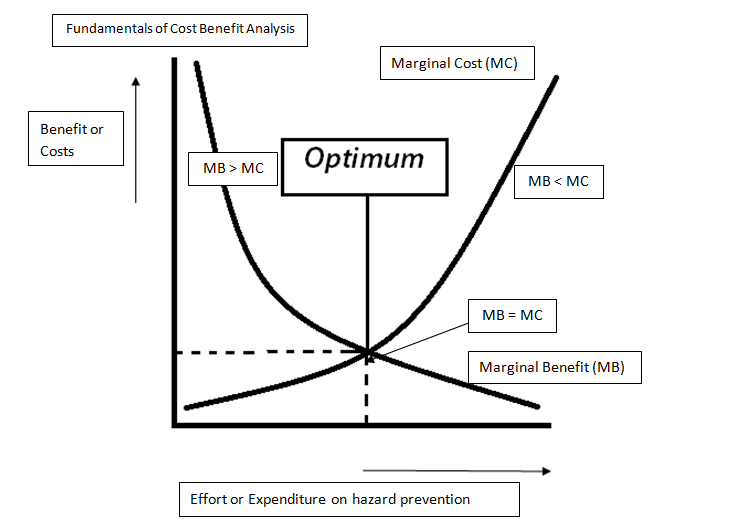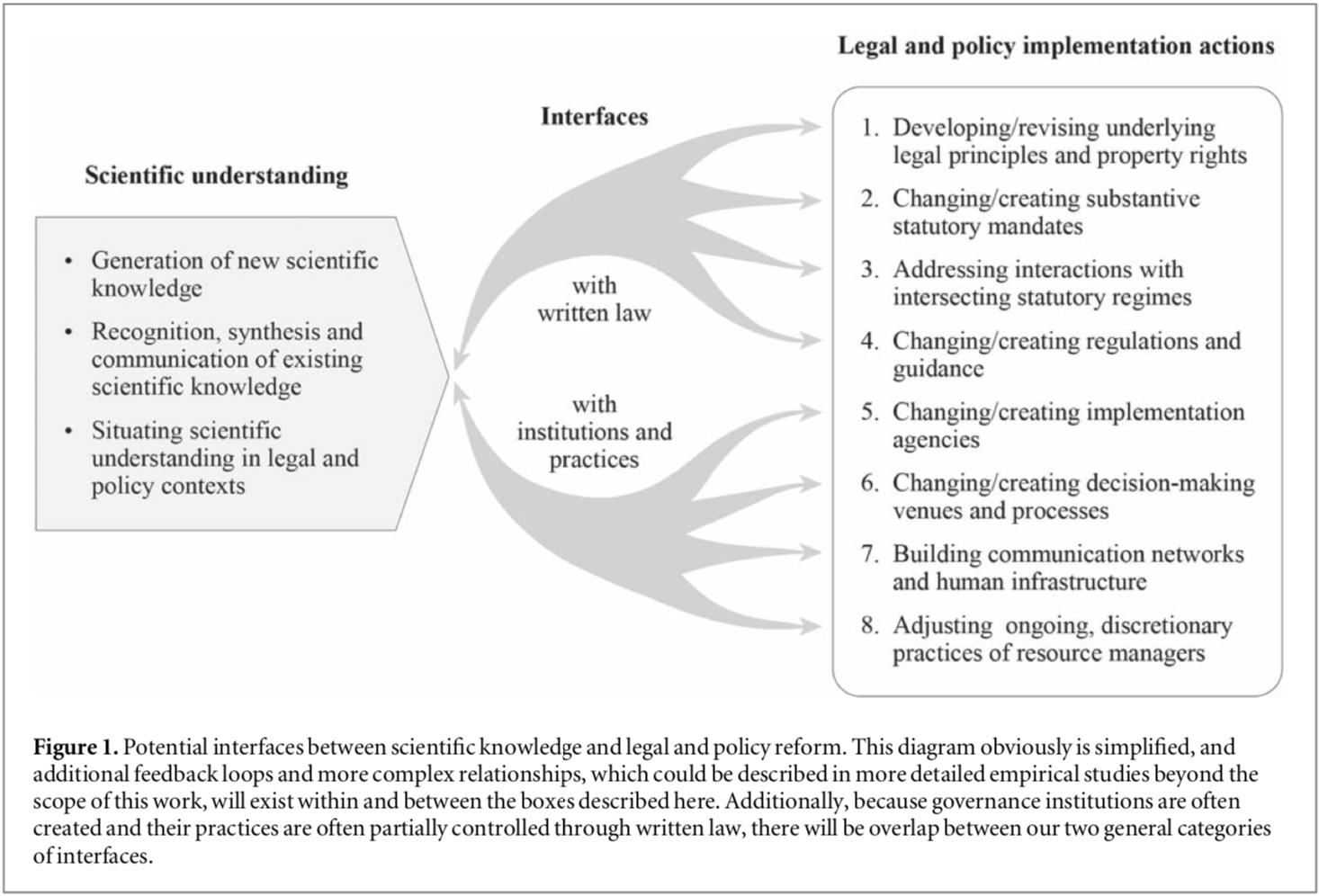Regulation
Unanswered Questions About Cost-Benefit Analysis
We have only fragmentary evidnece about how CBA actually functions in government decision-making.
Considering that people have been debating cost-benefit analysis at least since Reagan mandated its use in 1981, you would think we would have the answers to some basic questions about how it works. Yet we have very fragmentary information, generally based on the perspevtives of people at the agencies or in the White House Office …
Continue reading “Unanswered Questions About Cost-Benefit Analysis”
CONTINUE READINGGroundwater Recharge in the SGMA Era
California clarifies beneficial use guidelines for recharge projects addressing SGMA undesirable results
Implementation of the Sustainable Groundwater Management Act (SGMA) was always going to be tricky. Part of the necessary growing pains of SGMA is determining how the revolutionary statute interacts with traditional tenets of water law. As with any other sweeping legislative change, SGMA does not provide direct answers for every practical question which arises as …
Continue reading “Groundwater Recharge in the SGMA Era”
CONTINUE READINGCalifornia groundwater management, science-policy interfaces, and the legacies of artificial legal distinctions
By Dave Owen and Michael Kiparsky
One of the many noteworthy features of California’s Sustainable Groundwater Management Act (SGMA) is that it requires local government agencies to consider and address the effects of groundwater management upon interconnected surface water. That requirement is an important step towards rationalizing California water management, which has long treated groundwater and surface water as separate resources. …
CONTINUE READINGCleveland, City of Light, City of Magic
Newspaper Layoffs Claim The Plain Dealer’s Energy Reporting
On Tuesday, I wrote about the demise of local newspapers nationwide and in particular the collapse of the Cleveland Plain Dealer, arguing that universities need to fill the gap of quality journalism. I also suggested that this is an environmental issue, as it is local newspapers’ coverage of the environment that often drives the conversation. …
Continue reading “Cleveland, City of Light, City of Magic”
CONTINUE READINGWhat Else Should Congress Investigate?
Understandably, a lot of attention is focused on the White House. But other issues cry out for investigation.
Every day, it seems that there is a headline about some investigatiion involving tcampaign finance violations, the White House, or the actions of some foreign power. Perhaps that’s all the bandwidth that Congress has. But there are other areas calling out for inquiry. Here are just a few: CAFE Standards. The car industry asked for …
Continue reading “What Else Should Congress Investigate?”
CONTINUE READINGTrump Administration’s Cold Water War With California Turns Hot
Feds’ Curious New Lawsuits Against State Water Board Likely Just the Opening Litigation Salvo
When it comes to California water policy, the federal-state relationship has always been both strained and challenging. That intergovernmental tension harkens back at least to the Reclamation Act of 1902. In section 8 of this iconic federal statute that transformed the American West, Congress declared that the federal government “shall proceed in conformity with” state …
Continue reading “Trump Administration’s Cold Water War With California Turns Hot”
CONTINUE READINGEconomists vs. Environmentalists: Time for Deténte?
You don’t have to love economics to see it as a possible ally.
Cost-benefit analysis has long been the target of environmentalist ire. But one lesson of the Trump years has been that economic analysis can be a source of support for environmental policy — it is the anti-regulatory forces who have to fudge the numbers to justify their actions. Most energy and environmental economists are aghast at …
Continue reading “Economists vs. Environmentalists: Time for Deténte?”
CONTINUE READINGCalifornia Adopts New, Welcome Wetlands Protection Rules
State Fills Void Left By Trump Administration’s Weakening of Federal Wetlands Standards
This week California’s State Water Resources Control Board adopted important new rules to protect the state’s remaining wetlands resources. Enacted after over a decade of Board hearings, workshops and deliberation, those rules are overdue, welcome and critically necessary. Their adoption is particularly timely now, given the Trump Administration’s wholesale assault on and erosion of federal …
Continue reading “California Adopts New, Welcome Wetlands Protection Rules”
CONTINUE READINGEPA Shouldn’t Roll Back Coal Power Plant Emissions Standard, Conclude Experts in Electrical Grid Management and Pollution Control Technology Innovation
Emmett Institute Faculty File Two Comment Letters on Behalf of Experts, Demonstrating Flaws In Proposed Rollback of New Source Performance Standard for New Coal-Fired Power Plants
In 2015, EPA set greenhouse gas emissions standards for new coal-fired and natural gas-fired power plants under the Clean Air Act’s New Source Performance Standards program, Section 111(b) of the Act. These standards ensure that new plants can be built only if they incorporate state-of-the-art emissions controls. Unfortunately, in late 2018, the Trump Administration EPA proposed …
CONTINUE READINGCoastal Communities Demand EPA Update Decades-Old Oil Spill Regulations
Written in Collaboration with Camila Gonzalez*
Coastal communities are bracing themselves. Thirty years after the Exxon Valdez oil spill in Alaska, and almost nine years after the BP Deepwater Horizon rig explosion in the Gulf of Mexico, they are facing the threat of another catastrophic oil spill. The Trump Administration is paving the way. The Bureau of Ocean Energy Management will …
Continue reading “Coastal Communities Demand EPA Update Decades-Old Oil Spill Regulations”
CONTINUE READING











